
 Flash News
Flash News
Theth action, resident in tears: I built on my land with my life's expenses, the state should not destroy it
Directors targeted! After Fier and Durrës, Rama arrives in Elbasan
Name/Identification of the 23-year-old found dead near Shkopet Lake
IKM action in Theth, residents come out in protest
Reported missing by his father, 23-year-old found dead near Shkopet lake

Georgian police again used tear gas and water cannons to disperse protesters on Wednesday morning in the capital Tbilisi, prompting the international community, including a group of influential US lawmakers, to condemn its actions.
In the sixth consecutive night of protests in the Georgian capital, demonstrators moved from the Rustaveli Avenue center to a nearby metro station after security forces blocked their entrance to the Parmaneti building and arrested some of them.
Georgia has been rocked by protests since the ruling party, Georgian Dream, announced last week that it would suspend talks on the country's European Union membership.
Despite the growing protests, Prime Minister Irakli Kobakhidze has refused to back down and has threatened to punish political opponents, whom he accuses of the violence that occurred during the protests.
Security forces began to disperse demonstrators who had gathered in front of the Parliament building after the Interior Ministry said some of them had insulted law enforcement officers and thrown hard objects, fireworks and flammable materials at them.
Three influential US senators - co-chairman of the US Helsinki Commission, Senator Ben Cardin (Democrat of Maryland), Roger Wicker (Republican of Mississippi) and John Cornyn (Republican of Texas), issued a joint statement in support of the Georgian protesters and condemned the excessive use of violence by the Government.
"Georgian Dream's decision to abandon negotiations for membership in the European Union is a huge betrayal of the clear and overwhelming desire of the Georgian people to embrace European values and institutions," the three senators said.
"This is not the behavior of a government committed to democratic reforms and pluralism, but of an insecure regime that is pulling Georgia towards a Russian-style autocracy. These actions openly violate international democratic norms and undermine the legitimate aspirations of the Georgian people." it was said in the communique.
The protesters have confessed to Radio Free Europe the brutality exercised by the security forces against them.
"They were hitting us on the head," said protester Salome Zandukeli, describing how she and a friend were chased on the night of December 2 by about 25 policemen into a building in central Tbilisi, before finding shelter in a cafe.
Activist Gia Jvarsheishvili told Radio Free Europe that he was thrown to the ground by attacking police and beaten before being forced into a police van, where detainees were forced to lie down and stomped by police.
"Suddenly I felt unbearable pain and realized that I was hurt. I didn't know it then, but I had broken ribs," Jvarsheishvili said.
Georgia's pro-European president Salome Zurabishvili, who sides with the demonstrators, told Platform X that many of the arrested protesters had head and facial injuries.
Some of them were systematically beaten during their arrest and transportation to detention centers, she added.
Georgia's ombudsman accused the police of torturing pro-EU protesters.
The excessive use of violence by Georgian security forces against protesters was described as "very disturbing" by NATO Secretary General Mark Rutte, who said on December 3 that alliance members "call on the Georgian Government to remain in the path towards EU and NATO integration".
Most Georgians support EU membership, and efforts to join the bloc are mandated in the Georgian Constitution.
Georgia won EU candidate status in December 2023, but relations with Brussels have soured in recent months, starting with the passage of a Russian-style law on "foreign agents," which critics say threatens media and groups of civil society accusing them of "serving" foreign powers./ REL
Latest news

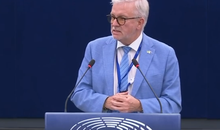
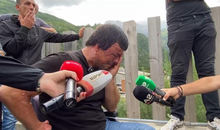

Hoxha: We will have a parliament that will surpass any comedy program!
2025-07-09 10:10:32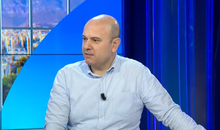

Directors targeted! After Fier and Durrës, Rama arrives in Elbasan
2025-07-09 09:53:57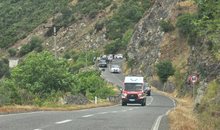
Name/Identification of the 23-year-old found dead near Shkopet Lake
2025-07-09 09:42:34
IKM action in Theth, residents come out in protest
2025-07-09 09:34:54
Reasons why the EU has not imposed new sanctions against Russia
2025-07-09 09:18:35
DW: Online scams increase human trafficking
2025-07-09 09:01:29
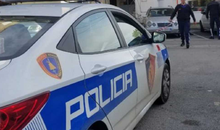
Reported missing by his father, 23-year-old found dead near Shkopet lake
2025-07-09 08:42:13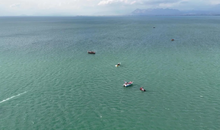

Horoscope, what do the stars have in store for you today?
2025-07-09 08:25:44
Sun and rain, Wednesday with unstable weather
2025-07-09 08:06:58
Posta e mëngjesit/ Me 2 rreshta: Çfarë pati rëndësi dje në Shqipëri
2025-07-09 07:52:02

Tabaku: Salianji bore a political cost that no one in Albania has borne
2025-07-08 22:36:15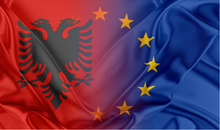


Sekretet për të shijuar verën si një ‘profesionist’
2025-07-08 21:45:06


Albania's Waste Crisis: Toxic Smoke and Deep Governance Problems
2025-07-08 21:13:07
Alarming pollution in Fushë-Arrëz, copper factory waste turns the Fan River red
2025-07-08 21:07:14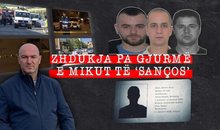

Poll/ How do you assess the Prime Minister's intervention in local government?
2025-07-08 20:40:01
28 arrested in Italy and Spain for drug trafficking, including an Albanian
2025-07-08 20:24:14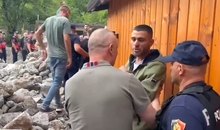
Residents clash with police in Theth: We are on our land
2025-07-08 20:11:41
Death of 27-year-old in Lipjan, Osmani: To be investigated independently!
2025-07-08 20:06:52
Trump promises US will send more weapons to Ukraine
2025-07-08 19:54:25

EU targets health, education, police and cadastre as areas of corruption
2025-07-08 19:23:34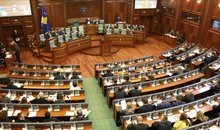
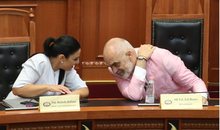
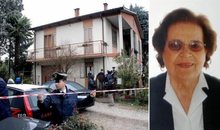
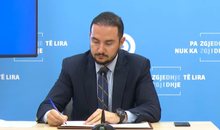

Salianji after his return: I did not oppose for functions, but for vocation
2025-07-08 18:23:15
Will he run in the 2029 elections? Here's how Salianji answers
2025-07-08 18:16:09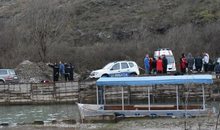
Boat captain drowns after diving into water to save two tourists in Shkodra
2025-07-08 18:05:12
Salianji from the DP headquarters: I brought a drug trafficker to justice
2025-07-08 18:03:26
After Fier, Rama "landes" in Durrës, dismissals expected
2025-07-08 17:53:32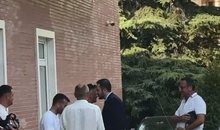
Ervin Salianji arrives at the blue headquarters, welcomed by supporters
2025-07-08 17:45:12
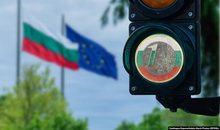
EU approves final steps for Bulgaria's Eurozone membership
2025-07-08 17:43:06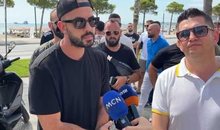
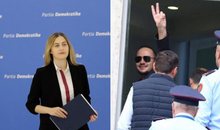
Zhupa after Salianj's release: Inspiration for every opposition member
2025-07-08 17:19:39
Actor David Killick passes away
2025-07-08 17:09:23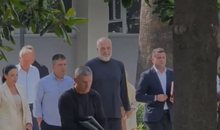


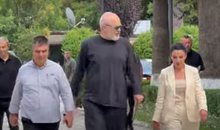
Threatened with dismissals, Rama arrives at the Fier municipality
2025-07-08 16:39:19
Extreme temperatures temporarily close Acropolis in Greece
2025-07-08 16:30:34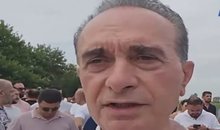

A plot of cannabis is discovered in Mazha, Kruja
2025-07-08 16:13:48

Republika Srpska allocates additional 22 million euros for lobbying in the US
2025-07-08 15:52:04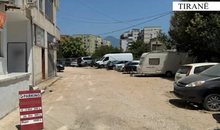

Spices that protect you from mosquitoes!
2025-07-08 15:30:03

Accident on the Vlora-Qeparo axis, one injured
2025-07-08 15:11:52
Berat, 17 years part of UNESCO's world heritage
2025-07-08 15:03:30
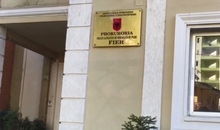

Cost of living increases, inflation rises to 2.4% in June, driven by food
2025-07-08 14:29:54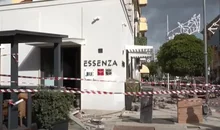
VIDEO/ Restaurant roof collapses in Italy, one victim and ten injured
2025-07-08 14:18:44
Requested release from cell, Supreme Court leaves Veliaj in prison
2025-07-08 14:07:41
TikTok shutdown/ Austrian media: Rama benefited politically from the app ban
2025-07-08 13:48:25
Acropolis temporarily closed due to heat
2025-07-08 13:31:09


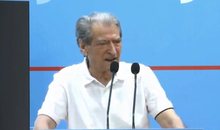
Salianj's release/Berisha: He was politically condemned by Rama and Xhafa!
2025-07-08 13:00:13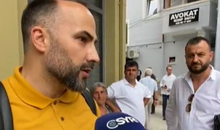

Knife attack on Peshkopia Boulevard
2025-07-08 12:44:10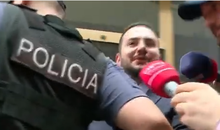
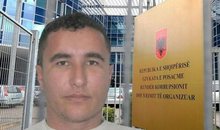

Fier Court decides on the conditional release of Ervin Salianj
2025-07-08 12:15:23
Cost of living increases, inflation rises to 2.4% in June due to food
2025-07-08 12:00:16

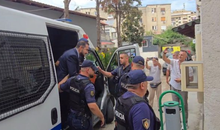
Requesting conditional release, Ervin Salianji arrives at the Fier Court
2025-07-08 11:16:36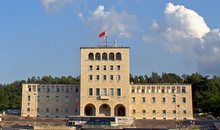
The first phase of university applications begins today
2025-07-08 11:10:52
Fire in Lura, flames endanger the National Park
2025-07-08 10:53:43
Trump warns of 35% tariffs on Serbia and 30% on Bosnia and Herzegovina
2025-07-08 10:37:32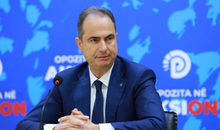
Thethi rooster and the dung cock
2025-07-08 10:24:01

Fire in Dukat endangers Llogara National Park
2025-07-08 10:01:39
International drug search: 36-year-old arrested in Durrës (NAME)
2025-07-08 09:50:48
Thethi, tourists "criticize" modern trend
2025-07-08 09:39:54
Fire on Mount Dukat still active, Llogara National Park at risk
2025-07-08 09:28:12
Veliaj's appeal to be heard today in the High Court
2025-07-08 09:16:02
"Bad sign for democracy"/ Parliament neglects reporting by institutions
2025-07-08 09:04:56
Today's hearing at the Fier Court, Salianji requests conditional release
2025-07-08 08:56:39
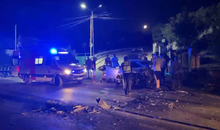

Horoscope, what do the stars have in store for you today?
2025-07-08 08:16:19
Weather forecast/ How temperatures will vary throughout the day
2025-07-08 08:02:37
Morning Post/ In 2 lines: What mattered yesterday in Albania
2025-07-08 07:48:30
